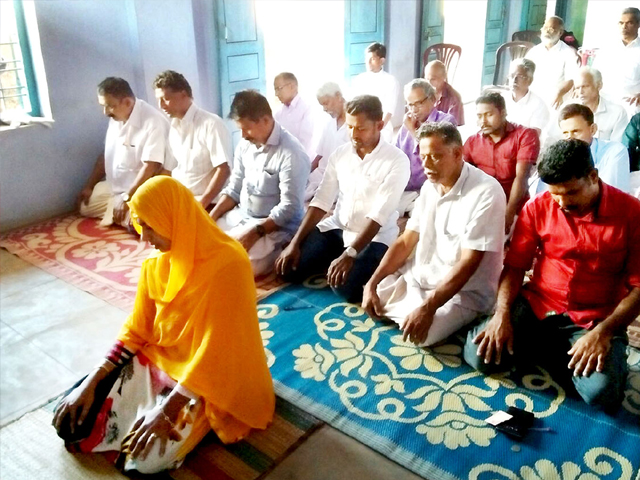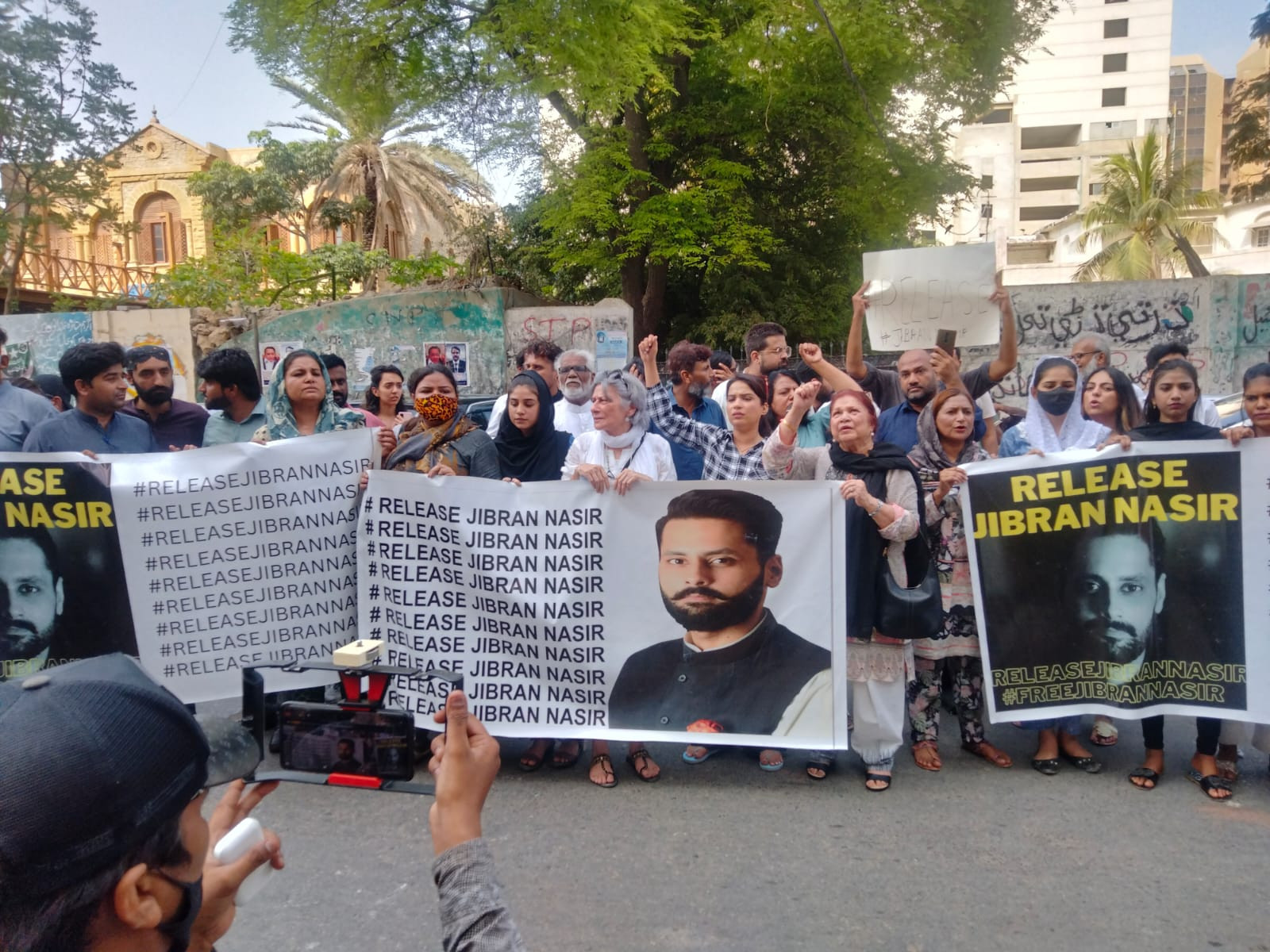
Jamida Beevi leading the Friday prayers in Malappuram. PHOTO: SCROLL.IN
A woman leading Friday prayers proves that without patriarchy, Islam can be a progressive religion
She emphasised that gender equality is manmade. Hence she is reclaiming the space and status her religion grants her.
A few days ago, I came across a headline that piqued my interest. In the Indian state of Kerala, a Muslim woman named Jamida Beevi led the weekly Friday prayers in the predominantly orthodox Muslim town of Malappuram.
Her decision to do so is remarkable, given the fact that she is in reality a religious and practicing Muslim who also works for a religious organisation. This also marks the first time that an Indian Muslim woman has led prayers and that too in an orthodox setting. In the past, some women have done so in western countries where threats of violent backlash are relatively minute.
In this case, Beevi has taken a huge risk, as violent backlash is a real possibility in India. In fact, after leading the prayer, she has constantly been receiving death threats from fundamentalists. However, Beevi has remained undeterred by the backlash. In a subsequent interview, she stated that she believes in the Holy Quran, which teaches equality between men and women, and emphasised that discrimination against women is manmade and imposed by the male clergy.
I could not help but marvel at her courage and conviction. Here is a devout and a hijab-wearing Muslim woman, who is challenging gender stereotypes and actually using religious justifications to do so. Her actions are not based on some western ideal, but on her interpretation of her religion, Islam.
Of course, there are many who disagree with her. After reading the story, I came across some heated debate on social media on whether this act by a woman is allowed in Islam or not. I also came across some videos, where conservative clerics were heatedly arguing that this act is not allowed in Islam, as it compromised her modesty!
Now, I am by no means a religious scholar, but I would like to point out that there are many practices that leave significant room for debate within the Islamic tradition, and what ultimately really matters is the interpretation of the religion itself.
For instance, there has been some debate on whether a woman can be the head of state in a Muslim country or not. According to some conservative scholars, it is not allowed, whereas some relatively liberal scholars think that it is permissible. Despite the opposition by some hardline elements, we have seen several female heads of state in recent times, including Benazir Bhutto (Pakistan), Sheikh Hasina Wajid (Bangladesh), Khaleda Zia (Bangladesh) and Megawati Sukarnoputri (Indonesia). Eventually, what transpires depends on which interpretation is more acceptable for mainstream Muslims.
Until last year, Saudi clergymen had been using religious arguments against women’s right to drive, but today, the practice has become acceptable. The point I am trying to make is that religious interpretations can vary and always have room to evolve. Since religion is an extremely important aspect of Muslims’ lives and they want to follow the legal code and customs it prescribes, it is thus extremely critical that liberal interpretations become more pervasive amongst the followers.
If this happens, it will bode well for improving human rights and the gender imbalance in Muslim countries. In one of my previous articles, I wrote about gender imbalance being a systemic issue in the Muslim world. One can take the example of the World Economic Forum’s annual gender gap index, which ranks countries with respect to gender parity. In 2016, a total of 144 countries were ranked and not a single Muslim-majority country was in the top 50. Furthermore, the last 15 countries (130 to 144) were all Muslim-majority countries, with Pakistan ranked at 143 and only the war-torn Yemen below it at 144.
Things have hardly improved in 2017, as apart from Bangladesh, which improved its position from 72 to 47 over the year, all other Muslim countries remained ranked at the bottom, with Pakistan retaining its second last position. In fact, the strongest predictor of a country’s place in the aforementioned ranking is whether it is a Muslim country or not. If we take two countries with similar socioeconomic characteristics, but one is Muslim and the other is not, there is a strong probability the former will have much greater gender imbalance. In other words, even if we control other factors, the fact alone that a country is Muslim is seemingly the most significant factor in predicting the prevalence of gender disparity.
What makes Muslim countries so gender imbalanced? In my opinion, it is the prevalence of religious orthodoxy in the legal code as well as the customs, which in turn have led to a situation that is discordant with modern times. Gender balance cannot be improved without fracturing the religious orthodoxy, and for that we need reforms from within the religion. The most significant reformation would undoubtedly take place when religious practices start to change by accommodating women in leading roles, and only when religious practices change can everything else subsequently change as well.
It is in this context that this recent episode of a woman leading a prayer in India becomes important, as it has generated some much needed debate about the role that women can play in Islamic religious rituals. I am happy to see that in India, many women are coming to her defence, passionately arguing that Islam does not forbid a woman from leading the prayers. They are reiterating that Islam is a progressive religion, as it challenged the patriarchal system prevalent in Arab lands by giving women proper inheritance rights and improving their legal status. I fully agree with them, as I believe that Islam has that progressive spirit within. We just need to emphasise on it, so that we can come out of the current situation we are time-trapped in.
I hope that this debate, which has been kicked off by this act of bravery on Beevi’s part, sets a good precedent and continues to take place. Only by debating these issues can we move forward in the right direction. For now, good luck to Jamida Beevi, and all the other valiant women who are supporting her!




COMMENTS (36)
Comments are moderated and generally will be posted if they are on-topic and not abusive.
For more information, please see our Comments FAQ